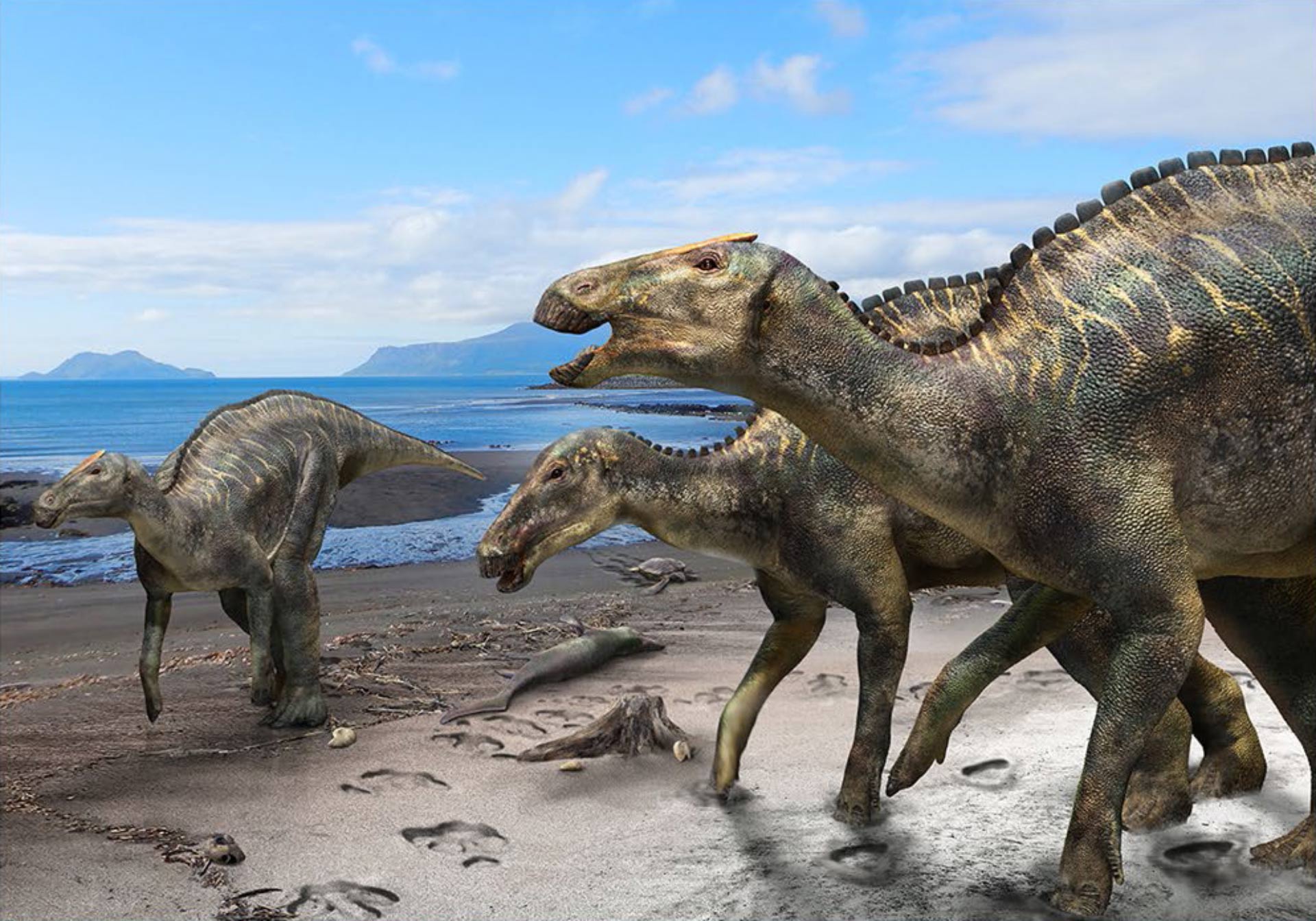When dinosaur remains were found in a Japan prefecture called Fukui, the authorities went as far as to decorate one of its train stations to make it look like Jurassic Park and even established a leading museum in palaeontology.
Again, when an amateur fossil hunter named Shingo Kishimoto found some dinosaur fossils in May 2004 in Sumoto City on Awaji Island, the museum in Fukui, which was located nearby, decided to search the area further.
According to a report by Sora News 24, the search unearthed 22 more fossils that dated back to the late Cretaceous period, some 72 million years ago.
The fossils were then given to paleontologist Professor Yoshitsugu Kobayashi from the Hokkaido University Museum, whose analysis found that the fossils belong to the jaw of a new species of Hadrosauridae.
The Hadrosauridae is a family of herbivore dinosaurs that have a duck-like snout, and they were said to thrive during the late Cretaceous period.
With so many parties involved in the findings of the fossils, question raised on who would be naming the new species.
Thankfully for everyone involved, a compromise was reached, and they decided to name it Yamatosaurus Izanagii.

The report said ‘Yamato’ is the name of the the ancient center of Japan and ‘Izanagi’ is the name of one of the creation gods in ancient Japanese mythology.
The legend goes that Izanagi and his sister-wife Izanami reportedly gave birth to all the islands of Japan, and as such, the name of the dinosaur is somewhat connected to the origins of the country.
Paleontologist Professor Yoshitsugu Kobayashi of The Hokkaido University Museum told the news portal that Yamatosaurus izanagii was believed to have weighed between four and six tons and measured about 7.5 meters long, so they were some big boys.
The fossils have been placed at the Museum of Nature and Human Activities beginning 12 May for display purposes.
We hope that someone will discover a made-in-Malaysia dinosaur fossil soon.
Again, when an amateur fossil hunter named Shingo Kishimoto found some dinosaur fossils in May 2004 in Sumoto City on Awaji Island, the museum in Fukui, which was located nearby, decided to search the area further.
According to a report by Sora News 24, the search unearthed 22 more fossils that dated back to the late Cretaceous period, some 72 million years ago.
Named after Japanese god

The fossils were then given to paleontologist Professor Yoshitsugu Kobayashi from the Hokkaido University Museum, whose analysis found that the fossils belong to the jaw of a new species of Hadrosauridae.
The Hadrosauridae is a family of herbivore dinosaurs that have a duck-like snout, and they were said to thrive during the late Cretaceous period.
With so many parties involved in the findings of the fossils, question raised on who would be naming the new species.
Thankfully for everyone involved, a compromise was reached, and they decided to name it Yamatosaurus Izanagii.

The report said ‘Yamato’ is the name of the the ancient center of Japan and ‘Izanagi’ is the name of one of the creation gods in ancient Japanese mythology.
The legend goes that Izanagi and his sister-wife Izanami reportedly gave birth to all the islands of Japan, and as such, the name of the dinosaur is somewhat connected to the origins of the country.
Paleontologist Professor Yoshitsugu Kobayashi of The Hokkaido University Museum told the news portal that Yamatosaurus izanagii was believed to have weighed between four and six tons and measured about 7.5 meters long, so they were some big boys.
The fossils have been placed at the Museum of Nature and Human Activities beginning 12 May for display purposes.
We hope that someone will discover a made-in-Malaysia dinosaur fossil soon.






